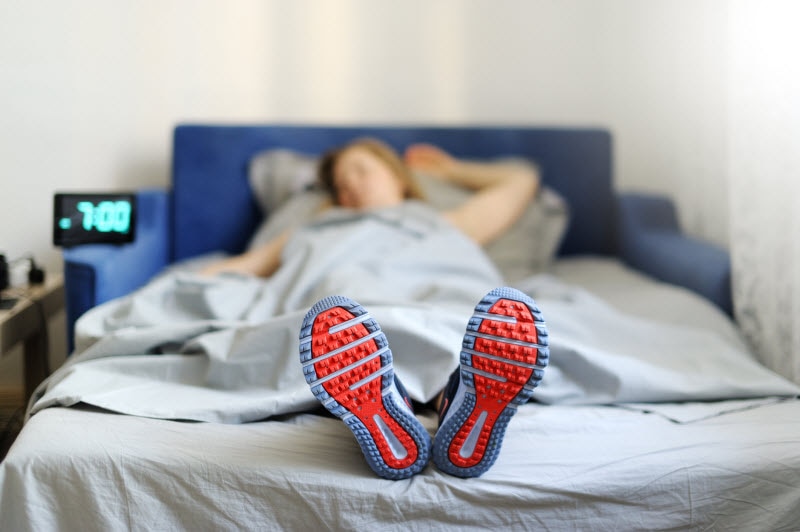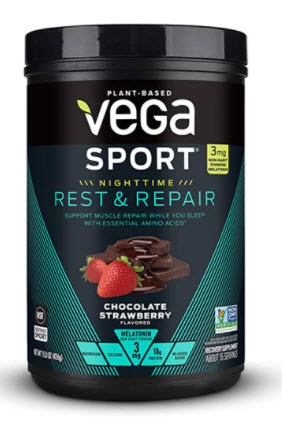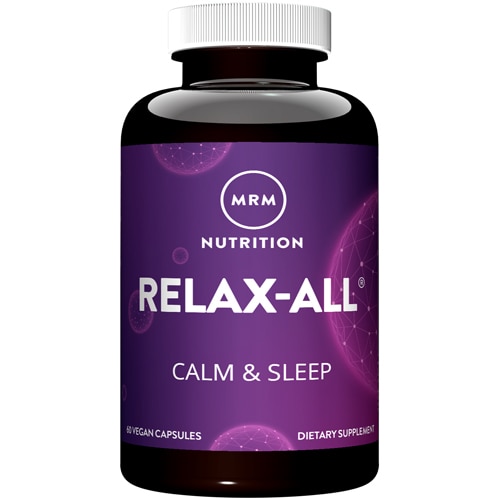Do you get enough sleep? An estimated one-third of Americans sleep less than seven hours each night, and another half of Americans do not meet the weekly exercise requirements for optimal health, according to the journal
Advances in Preventive Medicine. The problem is: those who lack both consistent exercise and adequate sleep are at a higher risk for chronic illness.

This is just one of many research studies that outline the often-ignored connection between sleep and exercise. When looking at these two areas of your health, it’s important to know that the quality and amount of sleep you get can influence the desire and energy level to exercise, whereas the mode, frequency, duration and intensity of exercise can also affect sleep patterns.
Don’t stop there. Take a closer look at the relationship between exercise and sleep — how they impact one other and which kinds of exercise can improve your sleep hygiene and help you to stay healthy.
Exercise and Sleep - How They Affect Each Other
How does sleep impact exercise?
If you experience insomnia or other sleep disturbances on a regular basis, research from
Frontiers in Public Health shows that you could exhibit more sedentary behaviors as well. In fact, an average of 5.5 hours of sleep each night can reduce both the duration and intensity of exercise over a two-week period.
This is especially true in adolescents who require a significant amount of sleep for both physical and mental development. Even just an 11-minute sleep reduction can lead to a one-hour increase in sedentary behavior among adolescents, suggests
Scientific Reports.
While sleep disruptions can result in more daytime fatigue and physical inertia, restorative sleep has the opposite effect. When you’re well-rested, it stands to reason that you’re more likely to feel energetic and active in the day — you may often experience this yourself after a great night of sleep.
The
International Journal of Sports Medicine also suggests that sleep is the “single most important factor in exercise recovery.” It can improve many areas of your athletic performance including sprint times, tennis serving accuracy, swim turn and stroke efficiency and basketball shooting.
Ultimately, getting a good night’s sleep enhances your alertness, vigor, reaction time, endurance and motivation to exercise in the first place.
How does exercise impact sleep?
Just as adequate sleep positively influences your exercise habits, the reverse is also true. A consistent exercise program can improve your sleep quality and help decrease insomnia, according to the
PeerJ Journal. How much you exercise you do each week also makes a difference. The goal is to aim for 150 minutes of aerobic activity per week to notice sleep improvements, according to the
International Journal of Behavioral Nutrition and Physical Activity.
The most interesting fact is that the impact of exercise on your sleep is immediate. In fact, 30 minutes of moderate aerobic exercise on a given day will increase your “slow-wave sleep quality” on that exact same night, according to Dr. Charlene Gamaldo, medical director of the
Johns Hopkins Center for Sleep. She explains:
“Slow-wave sleep refers to [when] the brain and body have a chance to rejuvenate. Exercise can also help to stabilize your mood and decompress the mind, a cognitive process that is important for naturally transitioning to sleep.”
Is working out before bed an issue?
The most ideal time of day —
or night — to exercise is all about what works for you. Dr. Gamaldo says: “I encourage people to listen to their bodies to see how well they sleep in response to when they work out.” She advises taking these factors into account:
1. Exercise causes the body to release endorphins which can increase brain activity and make it difficult for some people to mentally relax. If you often feel this way after a workout, be sure to exercise at least one or two hours before your normal bedtime, so these endorphin levels can recede.
2. Exercise raises the core body temperature which cues your brain into an alert and wakeful state. But about 30 to 90 minutes after exercise, the body temperature starts to lower again which can induce that sleepiness that can help you fall into a deep rest.
While there is speculation that exercise at night can disrupt your sleep habits,
European Journal of Applied Physiology reports that recent studies show exercising in the evening can actually be beneficial.
The journal explains that moderate- to vigorous-intensity evening workouts two hours prior to bedtime can increase sleep efficiency, wake after sleep onset, and sleep duration.
Which exercises can help you sleep?
The key to working out in the evening is choosing the types of exercise that have been found to help improve sleep. According to the
International Journal of Behavioral Nutrition and Physical Activity, the best types of workouts to do in the evening include:
- Aerobic exercises such as running, swimming or biking, which can help reduce insomnia and enhance overall sleep quality.
- Strength or resistance training, which can help you fall asleep faster and wake up less often in the middle of the night.
- Yoga and Tai Chi, which can help relax both the mind and body which makes it easier to sleep if you’re under stress.
Sleep and exercise: An important connection
The bottom line: sleep and exercise are undeniably connected. Just as adequate sleep can help you feel more energized and motivated to work out, consistent exercise can lead to more restful sleep patterns. Use these strategies and tips to maintain a balanced lifestyle and feel great, whether you’re hitting the gym or just waking up.
Featured products:


 This is just one of many research studies that outline the often-ignored connection between sleep and exercise. When looking at these two areas of your health, it’s important to know that the quality and amount of sleep you get can influence the desire and energy level to exercise, whereas the mode, frequency, duration and intensity of exercise can also affect sleep patterns.
Don’t stop there. Take a closer look at the relationship between exercise and sleep — how they impact one other and which kinds of exercise can improve your sleep hygiene and help you to stay healthy.
This is just one of many research studies that outline the often-ignored connection between sleep and exercise. When looking at these two areas of your health, it’s important to know that the quality and amount of sleep you get can influence the desire and energy level to exercise, whereas the mode, frequency, duration and intensity of exercise can also affect sleep patterns.
Don’t stop there. Take a closer look at the relationship between exercise and sleep — how they impact one other and which kinds of exercise can improve your sleep hygiene and help you to stay healthy.





